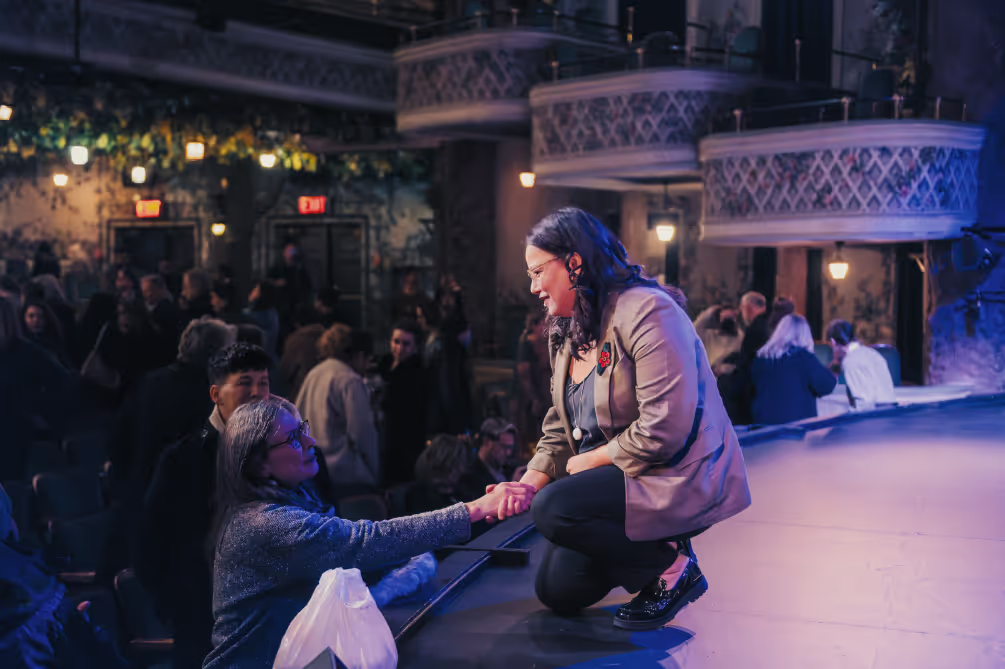Co-founded in 2007 by Alison Loat and Michael MacMillan, the Samara Centre for Democracy is Canada’s leading non-partisan organization focused on strengthening and protecting Canadian democracy. We are a registered charity with a mission to secure a resilient democracy with an engaged public and responsive institutions. Our name comes from the winged “helicopter" seed that falls from a maple tree, reminding us that from small seeds, big ideas can grow.







.avif)









For over a decade the Samara Centre has produced cutting-edge research, impactful events and engaging resources aimed at strengthening civic engagement and action in Canada.
Alison Loat and Michael MacMillan found the “Samara Project” based on the belief that Canadian democracy matters, and can be improved, with citizens playing a bigger role in shaping Canada’s political system.
With the help of the Canadian Association of Former Parliamentarians, Michael, Alison and colleagues initiate Canada’s first-ever series of exit interviews with former Parliamentarians, speaking with 80 former Members of Parliament from all political parties and regions of the country, including 35 cabinet ministers and one prime minister.
DemocracyTalks launches, a program developed in association with community groups across Ontario to help disengaged and disempowered Canadians find their political voice.
Tragedy in the Commons is published and becomes a national bestseller. Written by Michael MacMillan and Alison Loat, Tragedy in the Commons draws on exit interviews with former Members of Parliament from across the political spectrum to offer ideas for improving the way politics works in Canada.
The first Democracy 360 report is published, a made-in-Canada report card on the state of Canada’s democracy, which focuses on the relationship between citizens and political leadership.
The Democratic Engagement Exchange is established at Ryerson University’s (now Toronto Metropolitan University) Faculty of Arts and Science, developed out of the Samara Centre’s programs Democracy Talks and Vote PopUP.
The first annual In Defence of Democracy event takes place, convening a diverse audience that extends across sectors, disciplines, professions and generations to consider a pressing question of our era: How do we inspire renewed civic purpose in Canada?
The Samara Centre publishes Democracy Monitor, a series exploring the profound effect that COVID-19 had on the functioning of Canada’s democracy.
The SAMbot project launches - measuring abusive content that candidates and political parties received online during the 2021 Federal election. SAMbot will go on to track provincial and municipal elections across Canada to measure technology’s influence on our democratic culture.
The Samara Centre publishes Learning Loss as Civic Loss: Addressing the Generational Impact of the COVID-19 Pandemic on Youth Democratic Engagement, in partnership with the Rideau Hall Foundation. This report considers the state of youth civic learning and engagement in the context of the pandemic.
The Samara Centre’s podcasts, Humans of the House and Les Personnages de la Chambre are released. In these two podcasts, one English and one French, hosts Sabreena Delhon and Chloë Hill speak with former Members of Parliament, to hear, in their own words, what their job is really like. Both podcasts are accompanied by curriculum-connected teaching resources in English and in French for secondary and post-secondary classrooms. These shows have had over 20k listeners and have been praised for their informative exploration of the human side of politics.
The Samara Centre partners with CBC IDEAS for a series of cross-Canada discussions that focus on local solutions with the potential to inspire national change. IDEAS for a Better Canada brings together local innovators/thinkers/storytellers in each community for conversations that explore the next chapter of Canada's democracy.